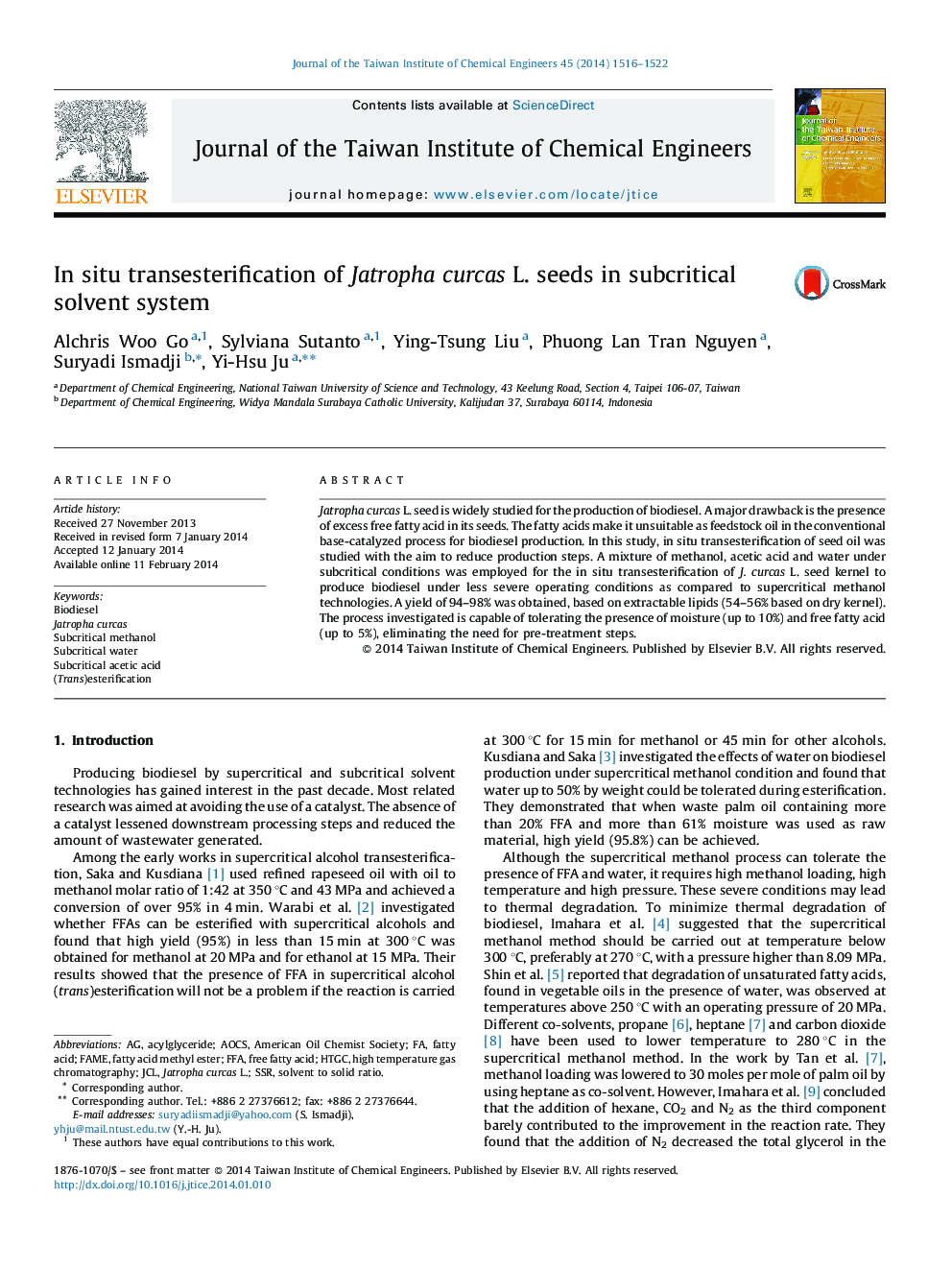| Article ID | Journal | Published Year | Pages | File Type |
|---|---|---|---|---|
| 690908 | Journal of the Taiwan Institute of Chemical Engineers | 2014 | 7 Pages |
•Biodiesel production using mixture of subcritical solvents.•High solid loading and low space loading with high FAME yield.•Free fatty acid content up to 5% in feedstock oil is allowed.•Moisture up to 10% in seed kernel could be tolerated.•Acetic acid as a co-solvent and a green catalyst.
Jatropha curcas L. seed is widely studied for the production of biodiesel. A major drawback is the presence of excess free fatty acid in its seeds. The fatty acids make it unsuitable as feedstock oil in the conventional base-catalyzed process for biodiesel production. In this study, in situ transesterification of seed oil was studied with the aim to reduce production steps. A mixture of methanol, acetic acid and water under subcritical conditions was employed for the in situ transesterification of J. curcas L. seed kernel to produce biodiesel under less severe operating conditions as compared to supercritical methanol technologies. A yield of 94–98% was obtained, based on extractable lipids (54–56% based on dry kernel). The process investigated is capable of tolerating the presence of moisture (up to 10%) and free fatty acid (up to 5%), eliminating the need for pre-treatment steps.
